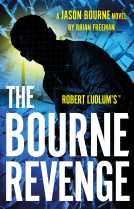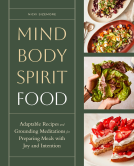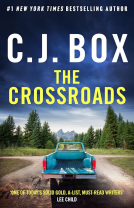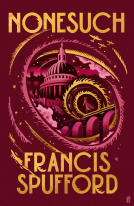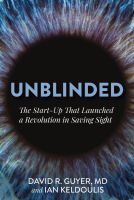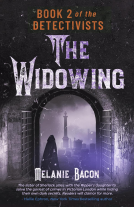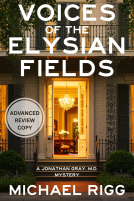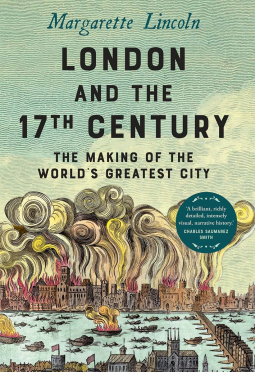
London and the Seventeenth Century
The Making of the World's Greatest City
by Margarette Lincoln
This title was previously available on NetGalley and is now archived.
Send NetGalley books directly to your Kindle or Kindle app
1
To read on a Kindle or Kindle app, please add kindle@netgalley.com as an approved email address to receive files in your Amazon account. Click here for step-by-step instructions.
2
Also find your Kindle email address within your Amazon account, and enter it here.
Pub Date Feb 23 2021 | Archive Date Feb 28 2021
Yale University Press, London | Yale University Press
Talking about this book? Use #LondonandtheSeventeenthCentury #NetGalley. More hashtag tips!
Description
“Lively and arresting. . . . [Lincoln] is as confident in handling the royal ceremonials of political transition . . . as she is with London's thriving coffee-house culture, and its turbulent maritime community.”—Ian W. Archer, Times Literary Supplement
“Lincoln has a curator’s gift for selecting all the right details for a thoroughly absorbing account.”—Tony Barber, Financial Times, “Best Books of 2021: History”
The Gunpowder Plot, the Civil Wars, Charles I’s execution, the Plague, the Great Fire, the Restoration, and then the Glorious Revolution: the seventeenth century was one of the most momentous times in the history of Britain, and Londoners took center stage.
In this fascinating account, Margarette Lincoln charts the impact of national events on an ever-growing citizenry with its love of pageantry, spectacle, and enterprise. Lincoln looks at how religious, political, and financial tensions were fomented by commercial ambition, expansion, and hardship. In addition to events at court and parliament, she evokes the remarkable figures of the period, including Shakespeare, Bacon, Pepys, and Newton, and draws on diaries, letters, and wills to trace the untold stories of ordinary Londoners. Through their eyes, we see how the nation emerged from a turbulent century poised to become a great maritime power with London at its heart—the greatest city of its time.
Advance Praise
“Draws on a vast array of sources to explore how Londoners were affected by national events and changes in attitudes”—Caroline Sanderson, The Bookseller
"A fascinating journey round the best city in the world during the most turbulent period in its long history. Terrorism, war, plague, fire and revolution – they all have their place in an exciting story told with verve and wit."—Adrian Tinniswood, author of The Long Weekend
“Lincoln has the keenest possible eye for the character of the key players, the court as well as the populace, for the process of historical change and for London’s street-life, the docks and palace ceremony, coffee houses, gardens and shops. She makes the whole look and feel of the period come alive.”—Charles Saumarez Smith, author of East London
“London in the 17th century was visited by apocalyptic events: plague, fire and war. Yet it survived all these, emerging as one of the greatest cities of the Western world. In this lively account, Lincoln shows us how the transformation was possible.”—Margaret Willes, author of The Curious World of Samuel Pepys and John Evelyn
Available Editions
| EDITION | Other Format |
| ISBN | 9780300248784 |
| PRICE | $32.50 (USD) |
| PAGES | 384 |
Average rating from 16 members
Featured Reviews
 Heather R, Reviewer
Heather R, Reviewer
My thanks to the publishers for an advanced review copy of this most accessible and absorbing book, which covers how the political, scientific and economic revolutions which ripped through this fascinating century along with plague and fire made London recognisably the city it has become. The text is very well researched and informed with the comments of contemporaries, rich and poor. There are a comprehensive index and a very useful bibliography.
We begin with the funeral of Elizabeth I in a city of around 200,000, about to suffer a plague year in which perhaps 33,000 would die. 70%of men and 20% women could sign their name and 10% of the population were apprentices, inclined to rowdiness, especially on Shrove Tuesdays. Livery companies dominated local governance and women dried washing on the pastures and fields of what is now Shaftesbury Avenue. Shakespeare’s King’s Men performed at the Globe in the summer and indoors at Blackfriars the rest of the year. The fervour and outrage occasioned by seemingly minor religious changes under the Stewarts is perhaps well explained by the way plague was seen as a divine punishment and its horrors are certainly more real to us now.
By the end of the century, 500,000 live in London, the largest city in the world, which has around 400 coffee houses, a press, a Royal Society, the Greenwich Observatory, a penny postal service, joint stock companies, women actors in the playhouses, squares of new houses with central garden spaces, lotteries and a craze for porcelain. Women’s literacy has risen to 50% but still, by an analysis of London’s bills of mortality carried out by a button maker, more than a third of those born die before they are 6 and only 7% reach old age. Autumn is the peak season for dying.
In between we have witnessed the part London played in the downfall,of Charles I, the Civil War years and the Putney debates, the ambiguous London view of Protector Cromwell, the restoration, the great plague of 1665, the huge fire of 1666 and the accession of the House of Orange.
I really enjoyed reading this book and recommend it to anyone interested in the making of London and one of the most tumultuous centuries for these islands.
London and the 17th Century was an interesting and informative read overall. There were some chapters that felt a little dry, but this may be partly because those were the ones in which I already knew most, if not all, of the material from previous reading and research. I particularly enjoyed the sections on things like furniture and changing fashions--the details of everyday life, rather than the political situation--as I had not come across so much detail on those aspects in previous books. Generally, though, the information was well presented and the prose highly readable, with a good balance between giving enough of a description without getting bogged down in dull facts. Recommended to those interested in learning more about England (and particularly London) during the 17th century.
 Mary H, Reviewer
Mary H, Reviewer
I loved this book, detailing the history of London, in my favourite period of history. Everyday life in London is covered, down to such incidents as the man who had an interspecies blood transfusion, Then there was the effect of the plague, which is highly relevant to modern times, with covid. I highly recommend the book.
Readers who liked this book also liked:
Dr. David Guyer & Ian Keldoulis
Business, Leadership, Finance, Health, Mind & Body, Science


